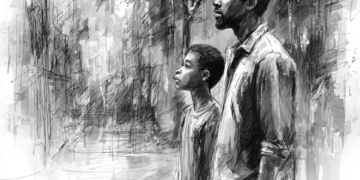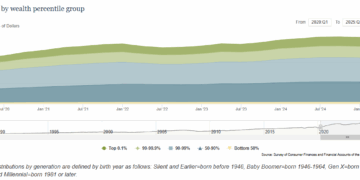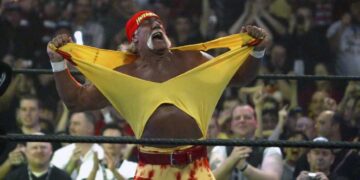The relationship between a father and son shapes the foundation of a young man’s understanding of masculinity, responsibility, and purpose. When that father figure is absent—particularly when absence stems from criminal activity—the impact reverberates through generations. Today, I want to address a difficult truth that many young men face: the romanticization of fathers whose actions have caused profound damage to families and communities.
The Glamorized Myth vs. Harsh Reality
Growing up, I witnessed firsthand how young men in my community would speak about their fathers with a mixture of pride and pain. These fathers, often involved in criminal enterprises, became larger-than-life figures in their sons’ minds. The occasional visit, the expensive gifts, the stories of street respect—all of these elements contributed to a narrative that obscured a fundamental truth: these men had abandoned their most important responsibility.
The reality behind the glamour tells a different story. While these fathers were building reputations on the streets, their children were struggling with homework alone. While they were earning respect through fear and violence, their sons were learning to navigate the world without guidance. The psychological research consistently demonstrates that father absence correlates with increased behavioral problems, academic struggles, and emotional difficulties in children.
The Ripple Effect of Abandonment
The damage extends far beyond the immediate father-son relationship. Mothers, left to shoulder the entire burden of child-rearing, often face overwhelming stress that affects their ability to provide consistent emotional support. These women frequently work multiple jobs while trying to fill both parental roles, a situation that creates additional instability in the household.
Young men in these circumstances often develop a skewed understanding of masculinity. They may equate strength with the ability to instill fear, success with material possessions obtained through illegal means, and respect with dominance. This misunderstanding perpetuates cycles of dysfunction that can span multiple generations.
The community impact cannot be ignored either. When fathers prioritize criminal enterprises over family responsibility, they contribute to neighborhood instability. The very communities that need strong, present fathers the most are often the ones most affected by their absence.
Redefining True Strength and Leadership
Real gangsters—true revolutionaries—look dramatically different from the criminal figures often idolized in popular culture. Consider Marcus Garvey, who built international movements focused on Black empowerment and economic independence. His strength came from his commitment to uplifting his community, not destroying it. Harriet Tubman demonstrated courage by repeatedly risking her life to lead others to freedom, using her abilities to build rather than tear down.
These individuals understood that true power comes from construction, not destruction. They recognized that lasting impact requires sacrifice, discipline, and unwavering commitment to principles larger than personal gain. Their legacies continue to inspire generations because they chose to be builders rather than destroyers.
The Path Forward: Breaking Destructive Patterns
Young men who find themselves caught in this cycle can take concrete steps toward change. The first requirement involves honest assessment of their fathers’ true impact. This means looking beyond the exciting stories and expensive gifts to examine the actual consequences of their choices.
Professional counseling provides invaluable support for processing complex emotions surrounding father absence. Organizations like the National Fatherhood Initiative offer resources specifically designed to help men break cycles of abandonment and become present fathers themselves.
Education and skill development create pathways to legitimate success. Community programs, trade schools, and higher education institutions offer alternatives to the limited options that criminal lifestyles provide. Building these foundations requires patience and persistence, but they offer sustainable futures that criminal enterprises cannot match.
Mentorship plays a crucial role in this transformation. Connecting with positive male role models—whether through formal programs, community organizations, or faith-based institutions—helps fill the guidance gap left by absent fathers. These relationships provide practical examples of responsible masculinity and successful living.
Personal Commitment: The Father I Choose to Be
I have a son, and I have made significant sacrifices to ensure that I am present in his life every single day. The concept of knowing I have a child in this world and choosing to be absent from his life is fundamentally incompatible with my character. I cannot comprehend how any man could walk away from such a profound responsibility.
My daily commitment involves more than physical presence. It requires emotional availability, consistent guidance, and the willingness to prioritize his development over personal convenience. The sacrifices necessary to maintain this commitment—whether financial, social, or professional—pale in comparison to the damage that absence would cause.
The goal extends beyond basic presence to active cultivation of his character. I am committed to raising him to become a productive member of society who contributes positively to his community. More importantly, I am determined to ensure that he becomes a better man than I am. This means learning from my mistakes, addressing my shortcomings, and providing him with opportunities I may not have had.
This personal commitment reinforces my conviction that the cycle of absent fathers can and must be broken. Every young man has the capacity to make this choice, regardless of the example set by previous generations.
Taking Responsibility for the Next Generation
The ultimate goal extends beyond personal transformation to community healing. Young men who successfully break these cycles have opportunities to become the father figures they never had, both for their own children and for other young people facing similar challenges.
This responsibility includes speaking honestly about the realities of criminal lifestyles. Rather than perpetuating myths about street credibility and easy money, these conversations should address the true costs: broken families, destroyed communities, and wasted potential.
Building legitimate pathways to success within communities requires collective effort. Supporting local businesses, engaging in civic activities, and creating positive gathering spaces all contribute to environments where young people can thrive without resorting to destructive behaviors.
Moving Beyond Excuses to Action
Change begins with acknowledging uncomfortable truths. Absent fathers who chose criminal lifestyles over family responsibility caused real damage that affected multiple generations. Recognizing this reality does not require hatred or permanent condemnation, but it does demand honest assessment.
Young men facing these circumstances have choices to make. They can continue perpetuating cycles of abandonment and destruction, or they can choose to become the men their communities need. This choice requires courage, commitment, and often significant sacrifice.
The communities that have suffered most from father absence need young men willing to step up as builders rather than destroyers. They need individuals committed to long-term change rather than short-term gains. Most importantly, they need men who understand that true strength comes from presence, consistency, and dedication to principles that uplift rather than tear down.
The cycle can be broken, but only through intentional action by young men willing to face difficult truths and commit to becoming the fathers, mentors, and community leaders their neighborhoods desperately need.


















































